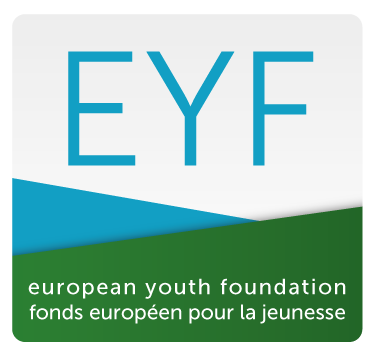During Day 2, our participants had the opportunity to do the first step towards our final aim: meeting with decision-makers and proposing their suggestions and recommendations to them.
The morning was dedicated to the ENTER Recommendation and Youth Work. Our team of facilitators invited the participants to take part in a simulation game on decision-making and social rights. During the activity, they became council members and had to decide on policies tackling various issues. Each of the “councils” had a different budget to invest in social projects, an inequality that raised dilemmas, strategies and reflections: which issue should be prioritised, and which should be put on the side? How to agree on a decision? Is it fair?…
The group was then joined by Alice Barbieri, member of the Advisory Council of the Council of Europe in charge of the Youth Sector. She shared her expertise on the ENTER recommendation, and explained the relation between youth and the Council of Europe. The participants were able to ask Alice their questions, from how to disseminate the ENTER Recommendation at local level, to suggestions on how to concretely have an impact on decision-making processes.
During the afternoon, the participants were gathered in groups of nationalities and invited to share with the others the issues of their country. Thanks to this exchange of facts and good practices, everyone was able to get a better idea of the distinct and common realities of the European territory. They finished this session with a clearer map of the problems that need to be solved all over Europe, but also, hopes and ideas on how to start solving them now.
The last session of the day focused on labels and stereotypes. While walking in the Strasbourg “wilderness”, the participants discussed with each other, wearing new identities on their foreheads. Homeless person, president, alcoholic… How do people interact with me? Why is their behaviour toward me different now? Why and how is it affecting me?…
Day 2 ended on a free evening exploring Strasbourg together and making friends.



This project was supported by the European Youth Foundation of the Council of Europe
and the Erasmus+ programme of the European Union

